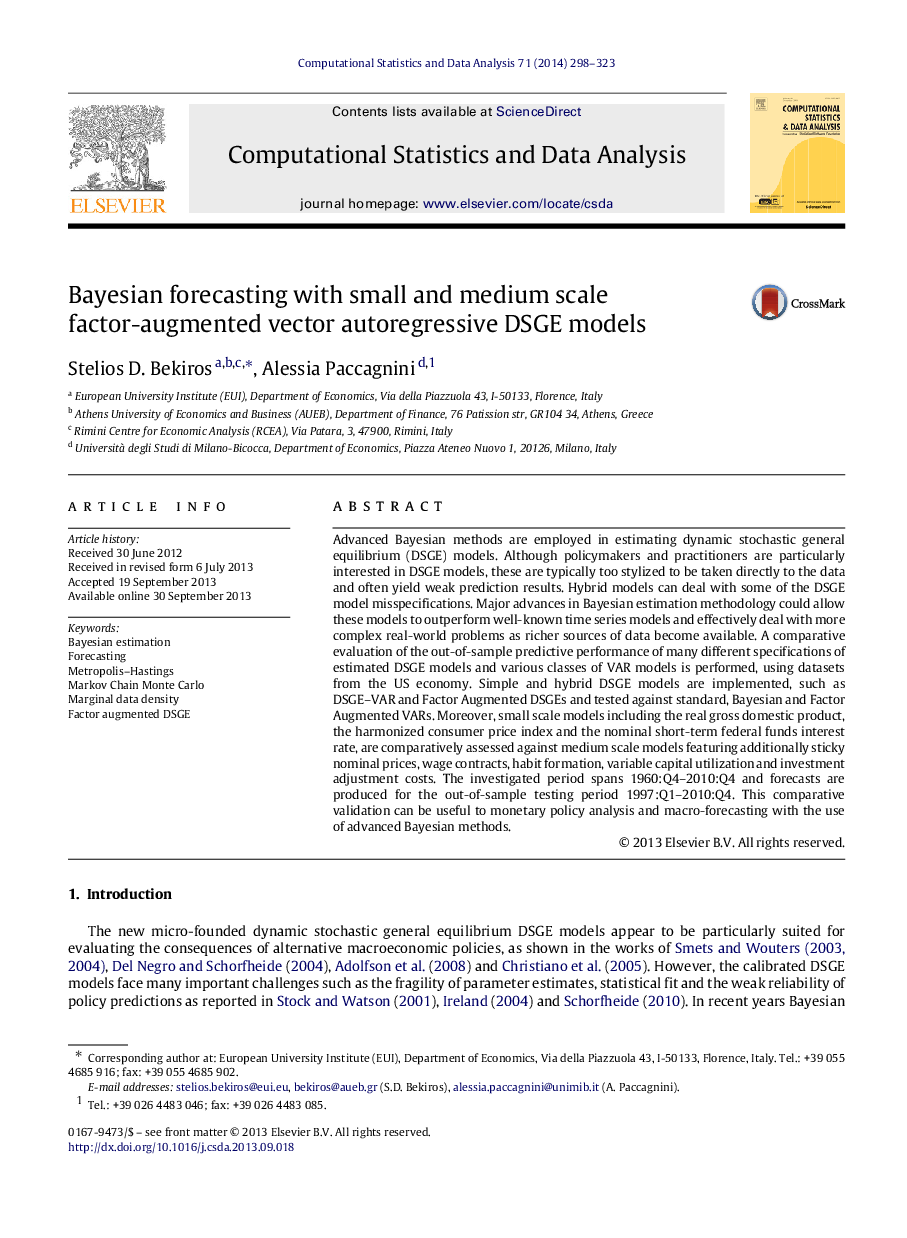| Article ID | Journal | Published Year | Pages | File Type |
|---|---|---|---|---|
| 6870382 | Computational Statistics & Data Analysis | 2014 | 26 Pages |
Abstract
Advanced Bayesian methods are employed in estimating dynamic stochastic general equilibrium (DSGE) models. Although policymakers and practitioners are particularly interested in DSGE models, these are typically too stylized to be taken directly to the data and often yield weak prediction results. Hybrid models can deal with some of the DSGE model misspecifications. Major advances in Bayesian estimation methodology could allow these models to outperform well-known time series models and effectively deal with more complex real-world problems as richer sources of data become available. A comparative evaluation of the out-of-sample predictive performance of many different specifications of estimated DSGE models and various classes of VAR models is performed, using datasets from the US economy. Simple and hybrid DSGE models are implemented, such as DSGE-VAR and Factor Augmented DSGEs and tested against standard, Bayesian and Factor Augmented VARs. Moreover, small scale models including the real gross domestic product, the harmonized consumer price index and the nominal short-term federal funds interest rate, are comparatively assessed against medium scale models featuring additionally sticky nominal prices, wage contracts, habit formation, variable capital utilization and investment adjustment costs. The investigated period spans 1960:Q4-2010:Q4 and forecasts are produced for the out-of-sample testing period 1997:Q1-2010:Q4. This comparative validation can be useful to monetary policy analysis and macro-forecasting with the use of advanced Bayesian methods.
Related Topics
Physical Sciences and Engineering
Computer Science
Computational Theory and Mathematics
Authors
Stelios D. Bekiros, Alessia Paccagnini,
